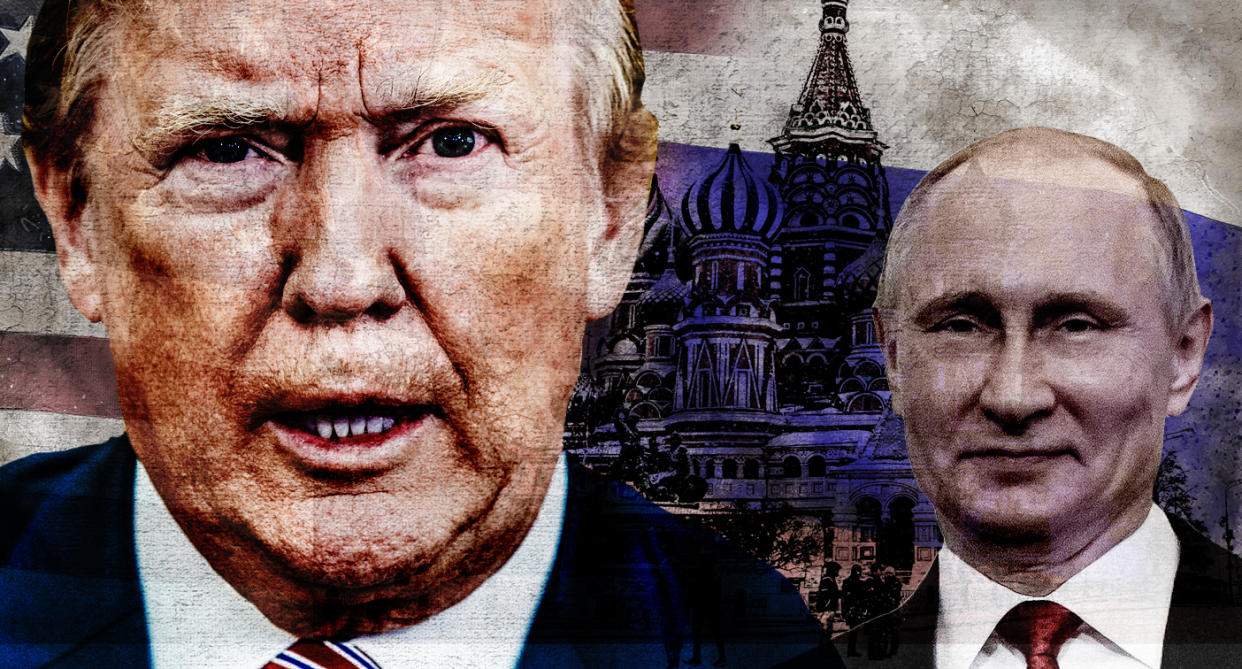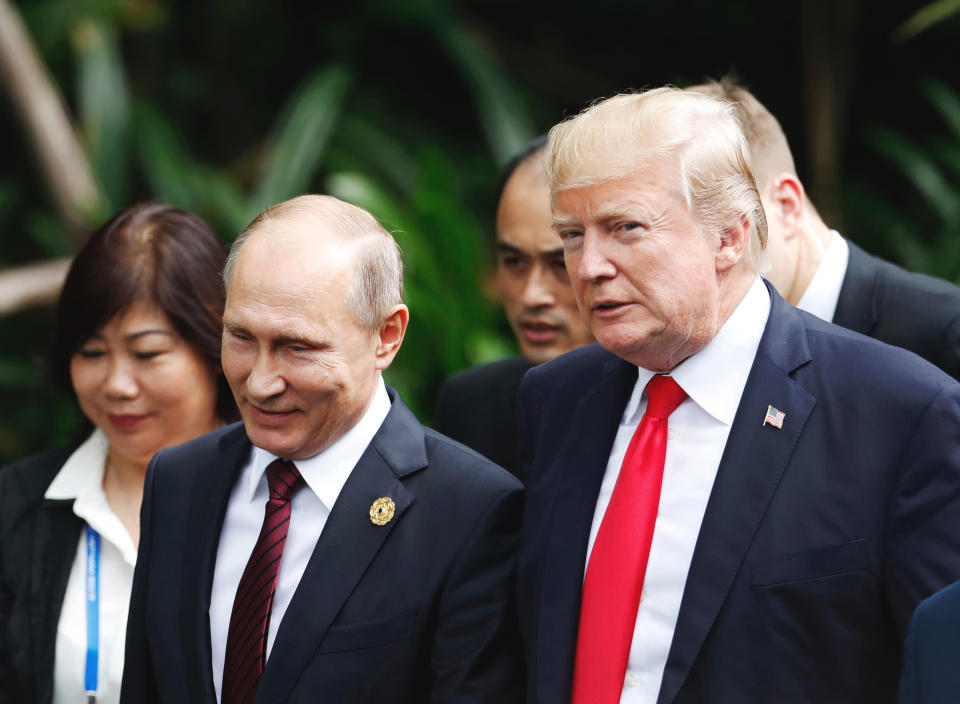Experts say Trump's Russia policy is at odds with itself

WASHINGTON — In the middle of February, U.S. airstrikes killed some 200 Russians who were fighting in Syria alongside troops loyal to dictator Bashar Assad. Russia sees the United States as its primary geopolitical foe, but the development made little news there, according to Russian journalist Yulia Latynina, because Russia had been “humiliated.”
“Putin doesn’t want a real war,” Latynina concluded. “What he wants is a PR war.” She made the comments at a Friday morning hearing of the Commission on Security and Cooperation in Europe, better known as the Helsinki Commission, named for the agreement signed in the Finnish capital in 1975. Composed of nine U.S. senators and nine U.S. representatives, as well as three members of the executive branch, the Helsinki Commission monitors human rights and security matters across Europe. It is currently chaired by Sen. Roger Wicker, a Mississippi Republican.
Titled “Reality vs. Rhetoric: Assessing the Trump Administration’s Russia Policy,” Friday’s hearing sought to separate the Trump administration’s policy on Russia from reactions to that policy by politicians and the media.
But as one of the panelists who testified before the commission argued, it is Trump himself who most frequently obfuscates his administration’s policy toward the Kremlin by making pronouncements — on Twitter in particular — that contradict the findings and actions of the U.S. intelligence community and diplomatic corps. That panelist, Alina Polyakova, a Brookings Institution scholar, argued that the Trump administration had actually taken unprecedented measures against Russia. She cited 26 “distinct policy actions” since 2017, when Trump entered the White House, with 205 new sanctions levied and what she called the largest expulsion of Russian diplomats in American history.
“This is significant,” she said, arguing that if Hillary Clinton were president, she would have likely taken similar actions. For all the talk of the Trump presidential campaign’s collusion with Russia, the White House has resorted to what she deemed “a very traditional deterrence strategy.”
You wouldn’t know this, Polyakova pointed out, if you listened to Trump, who has expressed an uncommon admiration for Putin. She described a surreal juxtaposition that took place in the previous week: Trump suggested, seemingly unprompted, that Russia should we welcomed back into the G-7 group of the world’s leading economies. On the same day, however, Director of National Intelligence Dan Coats branded Russia a global menace in a speech delivered in Normandy, France.

In large part, the three panelists at Friday’s hearing all advocated for a doubling down on the current approach of imposing sanctions on individuals and expelling diplomats, with a greater awareness of Russia’s desire to wage asymmetric warfare on the internet. Latynina was alone in advocating a great show of military might, the kind of display that would intimidate Putin but not lead to war.
“European allies don’t understand who to listen to in this administration,” Polyakova added.
“Confusing signals have been sent,” said Herman Pirchner Jr., president of the American Foreign Policy Council, who added that European allies are concerned that “Trump won’t hold the hard line” with Putin.
The panelists appeared to agree that among the best measures the U.S. could employ against Putin was to levy tougher sanctions on Russian oligarchs, the class of billionaires who form a kind of buffer between the Kremlin and the rest of Russia, protecting Putin from public discontent (and electoral vulnerability). “There’s a lot more that Congress can do,” Polyakova said, calling the round of sanctions levied by the Treasury Department earlier this year a “joke” because they appeared to be based almost entirely on a list of wealthy Russians culled from Forbes magazine. The treasury secretary is Steven Mnuchin, who served as Trump’s campaign chair and is generally seen as unwilling to take measures or make statements that could displease the president.
Figuring out what exactly Trump wants is one of the challenges in dealing with Russia. In his testimony, Pirchner relayed an anecdote from the film “Patton,” about Gen. George Patton, the legendary World War II commander. A subordinate informs Patton that “sometimes the men don’t know when you’re acting.”
Patton dismisses the concern. “It’s not important for them to know. It’s only important for me to know.”
Pirchner seemed to be suggesting that the world may not know whether Trump’s overtures to Putin are genuine — or whether Pentagon and State Department statements reflect America’s policy toward Russia. Nor is there much time to find out: Polyakova warns that Russia has “planted cyberbombs on our critical infrastructure systems.” And there is consensus in the intelligence community that Russia will meddle in the 2018 midterm elections, just as it did two years ago. That success could have only emboldened the Kremlin.
“Putin is the kind of guy,” Pirchner warned, “whose appetite is increased by the eating.”
_____
Read more from Yahoo News:
Trump says Kim ‘loves his people.’ Human rights groups beg to differ.
‘Sleep well tonight!’: Trump says North Korea is no longer a nuclear threat
Trump clashes with reporters over false claim about separating children
As North Korea danger recedes ever so slightly, renewed Russian threat looms
Photos: ‘Melting Away’ — Climate change and Greenland’s Inuits



